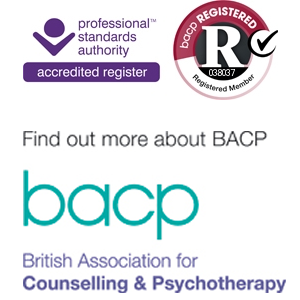Information about Anxiety
Everyone will experience anxiety from time to time when faced with difficult situations such as exams, adjusting to new situations, relationships, work or moving home. Usually, this is temporary and can be dealt with relatively easily.
Anxiety can be extraordinarily debilitating. A major difficulty is that there is nothing physical to see, leading others to sometimes disregard the illness or even to feel that it does not really exist. However if it persists, you may have an anxiety disorder.
We regret we are unable to advice on medical matters.
Anxiety and Anxiety attacks
There are a great many possible roots for the sources of anxiety and anxiety attacks and a full medical investigation should be conducted before beginning any form of therapy. When there is no apparent medical cause for the anxiety symptoms, the problem can usually be greatly relieved by modern drug-free therapies, though the style that you would need is not easy to forecast without conversation. Here are a few examples, though:
These can often be dealt with by face to face, ‘online – therapy’ or telephone work :
- Mild anxiety and worry on a day-to-day basis that seldom causes you to feel ill enough that you cannot function is more often than not linked to self worth or personal confidence issues, or poor self-belief.
- Anxiety attacks in certain circumstances only can often be dealt with in a few sessions. Where the circumstance that triggers the anxiety is unavoidable, this therapy can change your life!
- Anxiety around a certain individual can be relieved effectively, though to avoid continual reoccurrence, you may also need help to resolve the difficulties within the situation that exists between you and the other individual. This can quite often be achieved by Telephone work, though sometimes face-to-face work is needed as well.
The following anxiety symptoms may need more ‘in depth’ work:
- Anxiety that leaves you feeling ill a lot of the time can be helped enormously with the right sort of therapy. It is probably beyond the scope of E-therapy, though telephone consultation can be helpful.
- Continual anxiety that stops you doing things really needs face-to-face sessions with a competent therapist, though telephone work will make it easier for you to contemplate this.
- Random anxiety attacks need some sort of investigative therapy, as a rule, to help you discover the reason for the attacks – in the absence of a medical condition, there will definitely be a cause. This is not generally suitable for E-therapy or for telephone work.
Types of anxiety
- Generalised anxiety disorder (GAD)
- Panic disorder
- Social anxiety disorder (social phobia)
- Obsessive-compulsive disorder (OCD)
- Various phobias
- Separation anxiety disorder (SAD)
Symptoms of anxiety
General symptoms
- Fear, terror or panic attacks
- Problems concentrating
- Restlessness, inability to sit still
- Ruminative thinking
- Irritability
- Flashbacks of traumatic experiences
- Fear of dying
- Sense of unreality
- Perceived exaggeration of danger
- Hypervigilance, anticipation of harm
- Fear of losing control
- Obsessive or uncontrollable thoughts
- Problems sleeping, insomnia
- Nightmares
Physical symptoms
- Muscle tension
- Numbness or tingling in hands or feet
- Cold or sweaty hands or feet
- Nausea and dizziness
- Dry mouth
- Goosebumps
- Shortness of breath
- Palpitations
Nobody should ever have to ‘just put up with it’ as far as anxiety or feeling anxious is concerned; contact us for our professional advice on how best to find competent and effective help.


